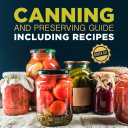Encapsulation Technologies and Delivery Systems for Food Ingredients and Nutraceuticals
关于此电子书
作者简介
(FROM EDIBLE OLEOGELS) Nissim Garti obtained his B.Sc., M.Sc., and Ph.D. from the Hebrew University of Jerusalem. He has been a full professor since 1990 and holds the Ratner Chair of Chemistry in the Department of Chemistry and Applied Chemistry. He also serves as a Board Member Elect and Director of the Hebrew University Governors Executive Board since January 2011. Nissim is the recipient of numerous prestigious awards including the Rockefeller Award, the Israel President Award for one of the most innovative inventions in 60 years of the existence of the country, Life-Time Achievement Award of the Food Society, the Chang Award of the AOCS, the Corporate Research Achievement Award of the AOCS for 2011, and many others. His achievements include publishing over 380 original (research) refereed papers in peer reviewed journals; writing over 60 review chapters in scientific books; granted over 80 patents; edited 7 books and additional 4 in preparation; invited to over 180 conferences as keynote, session, and invited speaker; and educated and tutored 38 Ph.D. students and 84 M.Sc. students. Nissim is a member of the board of directors of several academic institutions in Israel and consults for several Israeli and global industries. Nissim’s expertise, competence, and active research is in colloid chemistry, emulsion technology, dispersed systems, delivery new vehicles, microemulsions and lyotropic liquid crystals, crystallization phenomena, interfacial reactions and reactivity, amphiphilic proteins, hydrocolloids, dendrimers, nutraceuticals, and food science. (FROM COCOA BUTTER) Nissim Garti is Professor of Chemistry at The Hebrew University of Jerusalem. One of the founders of Adumim Chemicals Ltd., NutraLease Ltd.—a company focused on a nano-encapsulation technology for nutraceuticals, and LDS (Lyotropic Delivery Systems). He received B.Sc., M.Sc. and Ph.D. degrees from The Hebrew University of Jerusalem, Israel, in 1969, 1971 and 1974 respectively. Garti was awarded: Life Time Achievement of the Israeli Association for Food Research and Technology, Tel-Aviv, 2009; The Chung Scientific Award of the AOCS for Outstanding Scientific and Technology Achievements, Orlando, 2009; The Most Innovative Israeli Nanotechnology Award Winner of the CMNC Society, “Food Goes Nano- Liquid Nano Vehicles for Nutraceuticals solubilization and delivery, Chicago, USA, 2005; The Japanese Award for the Promotion of Senior Foreign Scientists, Hiroshima University, Hiroshima, Japan, 2003; The Best Invention and Innovation of The Hebrew University of Jerusalem 1997; The Most Innovative Food Ingredient Award in Europe (FIE), London, 1997; and The Japan Oil Chemical Society Forum Award for Outstanding Achievement, “Polymorphism in Fats, Nara, Japan, 1997. Professor Garti is the author of more than 400 publications and holds over 70 patents.
Professor David Julian McClements works in the Department of Food Science at the University of Massachusetts, Amherst. He is well known for his research into lipid oxidation and antioxidants.







